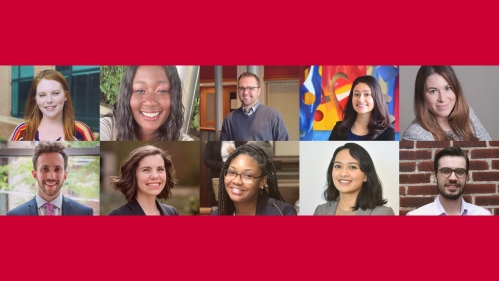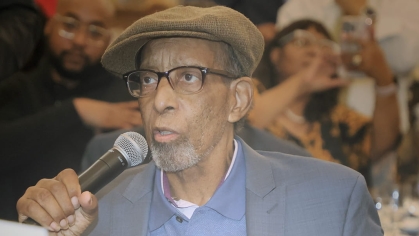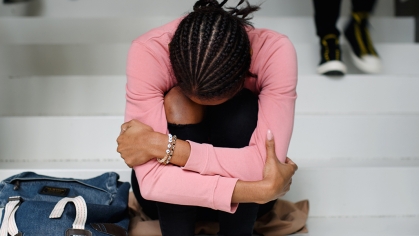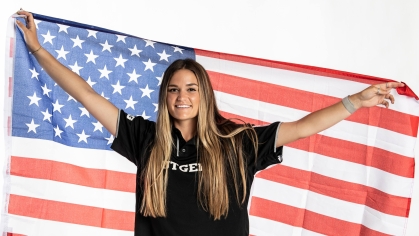This past summer, the Maida Public Interest Fellowships Program provided funding to Rutgers Law School students and one graduate as they worked in public interest law and served New Jersey communities with their expertise.
Since 2015, the Maida Public Interest Fellowships Program has enabled more than 240 Rutgers Law School students to provide more than 90,000 hours of free legal services to public interest legal organizations. Maida Fellows have helped thousands of people experiencing poverty or living with illness and disability, as well as government agencies attempting to address the rights of victims, protect the public from fraud, and find the best solutions for families experiencing violence. The program also supports one post-graduate fellow each year for an intensive public interest law experience in preparation for a full-fledged public interest career. The program models an ideal blend of philanthropy, public interest, and community service.
You could say it all started with rock climbing.
“When our kids started school, their school needed a rock-climbing wall,” says Sharon Maida GSE’97, who along with her husband, James RLAW'90, funds the program. “That was one of our first philanthropic endeavors. When the school needed to cut field trips, we would quietly pay for them.”
That funding for school projects continued a family tradition of philanthropy that they learned from their parents and later instilled in their four children. The tradition grew into a philanthropic portfolio that includes blindness support projects, social justice, and pediatric and geriatric health care. At Rutgers, Sharon and James have turned their philanthropy into a visionary program for law students—with a significant multiplier effect.
“This program gives Rutgers Law pro bono and public interest work a national reach and allows students to give back to their communities before they leave law school,” says James. “Everyone deserves access to justice.”
This summer, I helped a non-English-speaking elderly disability recipient get his benefits reinstated after the Social Security Administration had stopped paying him. He’d been without any income for four months and was down to his last $15. While this case was the most personally rewarding, it’s also the most illustrative of how necessary this work is.
—Kate Doyle, J.D. Candidate, 2022, Community Legal Services
The multiplier effect
James says the idea for the program began with thinking about how over the summer, law students often faced the choice of taking an unpaid public interest internship or a paying job that offered no legal experience.
“We thought about how students needed money, and how could they learn to be lawyers—pro bono lawyers—and work for nonprofits,” James says, adding that supporting law students and nonprofits who need a supply of quality lawyers also benefits community members who don’t always have access to great legal services. “We wanted to figure out how to pay it further forward through a multiplier effect of thousands of people receiving hours and hours of free legal services.”
The solution came from Jill Friedman, associate dean of the Pro Bono and Public Interest Program at Rutgers Law School. With input from colleagues, she came up with the public service proposal to present to the Maidas in 2014. “[Sharon and James] loved that they could help create a program for both the Camden and Newark campuses, that it would directly support students, and that every dollar would be going to help people in the community,” says Friedman. “They had the vision that this was more than donating a room or piece of technology. What they’re doing truly changes lives and has changed our law school.”
Prior to law school, I spent nearly ten years working as a social worker, serving children and families with child welfare involvement as a family therapist. Skills I acquired this summer formed a solid foundation for me to continue to develop and ultimately become an effective public interest attorney.
— Andrew Da Silva, J.D. Candidate, 2023, New Jersey Office of the Public Defender, Parental Representation
Despite the pandemic and social upheaval that marked the past few years, the Maida Fellowships Program continues to be a source of hope and desperately needed help. Thanks to the Maidas, students can learn substantive law—often on the front lines of a disaster response—and develop human-to-human skills and sensitivities that they will carry with them into their careers.
“Last summer, 46 students served in summer internships at the ACLU, the law school’s mortgage foreclosure and veterans’ clinics, Kids in Need of Defense, South Jersey Legal Services, Volunteer Lawyers for Justice, and many more,” says Kimberly Mutcherson, co-dean of Rutgers Law School. “These students, many of whom were still dealing with their own pandemic and related struggles, contributed at least 16,800 hours of free legal work.”
In recognition of their gift, the law school named the James and Sharon Maida Community Justice Suite where clinic students and faculty handle cases involving domestic violence, immigration, and children’s justice.
James and Sharon have committed to funding a five-year block at a time, then working with Friedman and her team to make sure they have what they need to run the program. Sharon notes that at launch, the number of interns was perfect, balancing the award amount with the number of students.
“If we’d had more students, everybody would’ve gotten a little less,” she says. “With our original gift we had 40.” But now that the program is seven years old, they are looking to raise the amount each student receives and increase the number of students from 40 to 60. “When you look at the number of hours of service, it’s incredible. Forty students, wow, that’s a lot. But then start doing the multiplier effect and you see the impact is so great,” she says. “Most people you interview say once you start and you’re able to see how it feels and see the impact, it’s so easy to want to give and do more.”
Immeasurable returns
As a trustee of Lehigh University and a former member of the Board of Directors at Rutgers, James says he has a unique insight into the real needs of a university and how philanthropy can help fill that need.
“I look at philanthropy also as an investment,” James says. “With most investments, you’re looking for a return. But with this program we are looking for an investment where the university gets the return. A good investor has quarterly or annual look-ins as to how their investment is doing. We try to take the philanthropy model and overlay an investment model. And it allows the university to have opportunity to come back to us and say, ‘We need more investment.’ It also allows us to understand what their needs are.”
The couple’s history provides them with unique experiences that play into the success of the program. James gained this investment philosophy through his work as founder, president, and CEO of Gaming Laboratories International, which provides professional services for casinos, land-based gaming, lotteries, and iGaming.
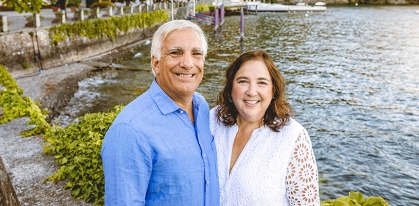
Having earned her doctorate in learning cognition and development from Rutgers, Sharon is a pioneer in orientation and mobility of blind and visually impaired individuals. Her private practice, Maida Mobility, provided mobility consulting services to children with visual impairment from months after they are born through their college years.
The couple met at Lehigh University, and after they married, Sharon started her doctoral program and James pursued a law degree, both at Rutgers.
“The plan was to go to school, get a degree that was pragmatic and useful, start a career in computer science, and then if I still wanted to go to law school I would go,” James explains. “And after two years, I wanted to make the commitment to go full time.”
Both have fond memories of Rutgers. As a large university, Rutgers embodied diverse thinking, particularly as it related to Sharon’s specialty of blindness and visual impairment. “I was surprised how so many different people—depending on what countries or states they came from—viewed blindness differently,” she says. “At Rutgers, I always felt like people were so receptive to different approaches and learning styles.”
James saw Rutgers as an outstanding value, teaching law students in a pragmatic and real-world way. “Sometimes law school teaches you in this theoretical realm where it’s like a big puzzle, but I really thought Rutgers prepared you for being an effective lawyer,” he says. “I would not be able to do what I do today had I not attended Rutgers Law.”
As grateful as James is to Rutgers Law, his alma mater is equally grateful to him and Sharon. Friedman says the Maida Public Interest Fellowships Program has bolstered the law school’s national reputation and enhanced recruitment efforts. The Law School’s Social Justice Scholars Program, a community within a community, nurtures students who want to pursue public interest careers by guaranteeing summer stipends, made possible by the Maidas.
Working at the SEC this summer allowed me to combine my passion for financial literacy and protecting minority communities with real-world legal experience. At the Division of Enforcement, I assisted brilliant attorneys in uncovering fraud and bringing enforcement actions against people and entities that financially devastated many individuals.
—Kayvon Paul, J.D. Candidate, 2023, U.S. Securities and Exchange Commission
“Many come here because they can’t get these paid public interest internships elsewhere. They’re getting experience they otherwise wouldn’t be able to get, launching their public service careers,” Friedman adds. “It’s a badge of honor now. Students will ask each other, ‘Are you a Maida?’”
The Maidas hope that beyond being a point of pride for students, their program also inspires these students to follow their philanthropic lead. James sums it up best: “We’re hoping that no matter where these students wind up, they think about either donating to this program, starting their own, or hiring interns from Rutgers Law School.”
For more information about the Maida Public Interest Fellowships Program, or ways you can contribute to the Pro Bono and Public Interest Program at Rutgers Law School, please contact Endia Decordova, vice chancellor for advancement, Rutgers University–Camden, at endia.decordova@rutgers.edu.
Make a Difference
Find an area to support that you care about: access to college, health care, innovative research, arts, sciences, and more.
Give Now